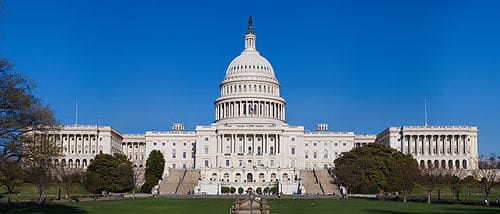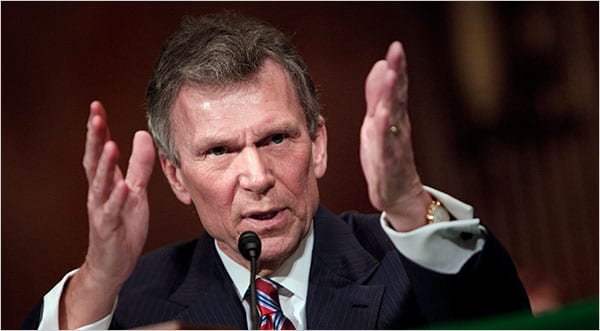
The House of Representatives and Senate released a draft of their economic stimulus packages titled “the American Recovery and Reinvestment Act of 2009.” The bills both contain $3.5 billion for NIH.
The Senate version designates more money directly to research than the House version. Senate Finance and Appropriations Committees are set to meet today to amend the bill before the full House is expected to vote on its version.
***Senator Specter plans to offer an amendment in Full Committee that would add $6.5B to the amount in the bill for NIH. This would bring the total to $10B for NIH***
The differences in the Senate and House Bills below:
The Senate Version includes the following amounts to the NIH and research:
- $2.7B for research, of which half must go to the institutes proportionally.
- $300M shared instrumentation
- $500M intramural construction
The House version includes the following amounts to the NIH and to research:
- $1.5B goes to the NIH, of which half ($750 million) is not available until October 1, 2009.
- $1.5B to renovate or repair existing non-Federal research facilities. These funds may also be used for “shared instrumentation and other capital research equipment.”
- Priority is to be given to applications “that are expected to generate demonstrable energy-saving or beneficial environmental effects.”
- $500M for intramural buildings and facilities.
$1.1 Billion for Comparative Effectiveness Research in the Stimulus
The House and the Senate both have designated $1.1B for comparative effectiveness research.
Of that amount;
- $300M is to be used by AHRQ for healthcare research,
- $400M is to be transferred to the NIH, and
- $400M will be allocated at the discretion of Secretary-Designate Daschle.
The funds, according to the Senate language is intended to “support research that evaluates and compares the clinical effectiveness, risk and benefits of two or more medical treatments and services.”
Interim Heads of NIH, CDC and FDA Named
FDA’s current science chief, Frank Torti, has been named as acting director until a permanent commissioner is appointed.
Richard Besser, who headed the CDC’s public health emergency preparedness and response functions, was appointed acting director of the CDC. He replaces Julie Gerberding who was head of CDC for the past 6 years.
Dr. Raynard Kington will continue to serve as Acting Director of the National Institutes of Health (NIH). Kington was named Acting NIH Director on October 31, 2008, following the departure of Dr. Elias A. Zerhouni.
Daschle HELP Confirmation Hearing
On January 8th, Senator Ted Kennedy (D-MA), Chairman of the Health, Education, Labor, and Pensions Committee (HELP) held the confirmation hearing for Secretary of Health and Human Services-designate Tom Daschle.

After a warm welcome by Senator Kennedy, Senator Enzi asked Daschle whether it makes sense for FDA to regulate tobacco and whether it would legitimize what is inherently an unhealthy product. Daschle said it is important to discourage tobacco use in every way we can and that anything FDA did would be to discourage tobacco use.
Senator Dodd emphasized the importance of quickly appointing a new FDA Commissioner so that the current problems at the agency can be addressed. Daschle said that the transition team was moving quickly to name heads of FDA, NIH, NCI, CDC in the next couple of weeks.
Senator Mikulski stressed that FDA has become too political, and asked Daschle how to bring science back to the agency. Senator Daschle responded that he will push to reinstate science-driven work and allow scientists the autonomy and resources to do their jobs and stressed that improving drug safety and efficacy and building a framework for “prevention compliance” is paramount, also saying that health IT would be a key part of this effort.
Senator Kennedy asked about reimportation of FDA approved drugs as a means of bringing down costs. Daschle said that a strong policy is needed to curb costs. Prior to a full Senate confirmation the Senate Finance Committee will hold a separate hearing that has yet to be scheduled. Secretary-Designate Daschle is fully expected to be confirmed.


